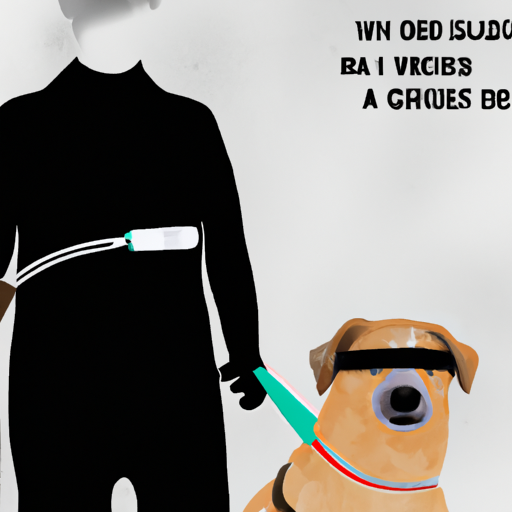As a caregiver, you bear the heavy responsibility of taking care of your furry friends, your dogs. But sometimes, nature throws a curveball and leaves you grappling with unexpected challenges. One such challenge could be your dog losing its sight.
1. Understanding Canine Blindness
Just like humans, dogs can suffer from a range of eye diseases that could potentially lead to blindness. Canine blindness can occur gradually, or it can happen suddenly, depending on the underlying causes. Your dog might develop cataracts, glaucoma, or retinal diseases, among other conditions.
2. Common Causes of Blindness in Dogs
Here are a few common causes of blindness in dogs:
-
Cataracts: This is perhaps the most common cause of blindness in dogs. Cataracts are characterized by a clouding of the lens of the eye, and can result from aging, diabetes, injury, or hereditary factors.
-
Glaucoma: Glaucoma results from an increased pressure within the eye, which can in turn damage the retina and the optic nerve, leading to blindness.
-
Retinal diseases: Diseases of the retina, such as Progressive Retinal Atrophy (PRA) and Sudden Acquired Retinal Degeneration Syndrome (SARDS), can also cause blindness in dogs.
3. Recognizing the Signs of Blindness
Your dog cannot communicate its discomfort in words, so it’s crucial for you, as a caregiver, to spot any signs of distress. Some of the signs that your dog might be losing its sight include bumping into objects, difficulty finding toys or food bowls, reluctance to go out in the dark, or changes in the appearance of the eyes.
4. Managing a Dog with Blindness
As a caregiver, it’s imperative for you to remember that your dog can still lead a fulfilling life even with blindness. Here are some tips to help you manage:
-
Keep the environment consistent: Dogs rely on their memory to navigate their surroundings. So, avoid rearranging furniture or leaving objects in the way.
-
Use sounds and smells: Your dog’s other senses can compensate for the loss of vision. Use bells, different scents, or textured mats to help your dog navigate.
-
Spend quality time with your dog: Your companionship can make a world of difference to your dog’s happiness. Spend time playing and interacting with your dog.
5. Preventing Canine Blindness
While not all causes of blindness can be prevented, regular vet check-ups, a balanced diet, and immediate attention to eye injuries can significantly reduce the risk.
| Prevention Method | Description |
|---|---|
| Regular vet checks | Regular check-ups can help detect early signs of eye diseases |
| Balanced diet | A diet rich in antioxidants and vitamins can support eye health |
| Immediate attention to injuries | Quick responses to eye injuries can prevent further complications |
FAQ’s
Q: Can dogs adapt to blindness?
A: Yes, dogs can adapt remarkably well to blindness. They rely on their other senses like hearing and smell to navigate their environment.
Q: How can I help my dog adapt to blindness?
A: Keep your dog’s environment consistent, use sounds and smells, and spend quality time with your dog.
Q: Can blindness in dogs be cured?
A: The possibility of curing blindness depends on the underlying cause. Some causes, like cataracts, can be reversed with surgery.
Q: How common is blindness in dogs?
A: The prevalence of blindness in dogs varies depending on breed, age, and overall health. Regular vet check-ups can help detect early signs of eye diseases.
Remember, your dog’s blindness does not define them or their quality of life. As a caregiver, your love and support can help them navigate this new chapter in their lives.



